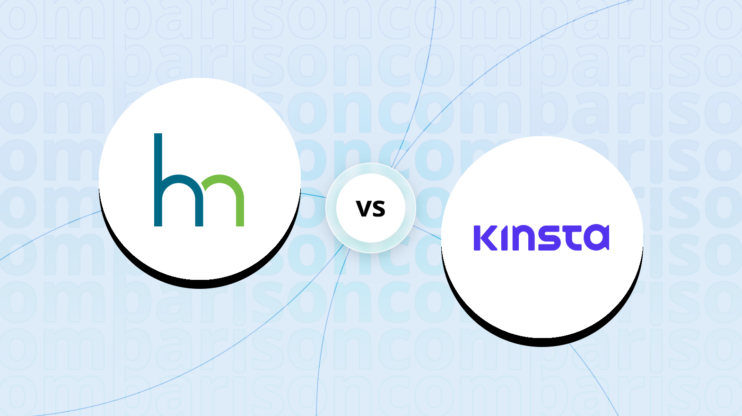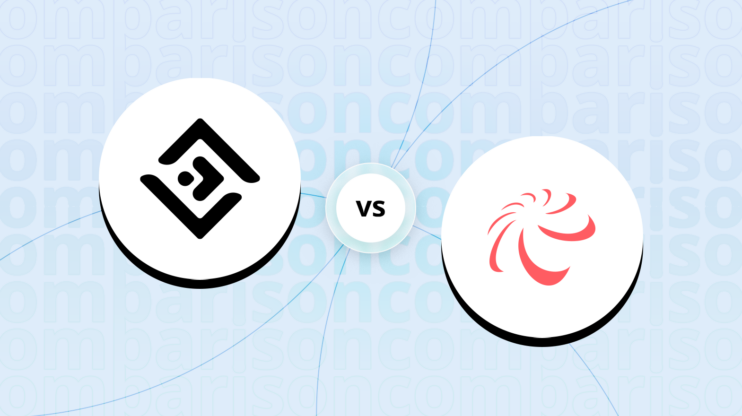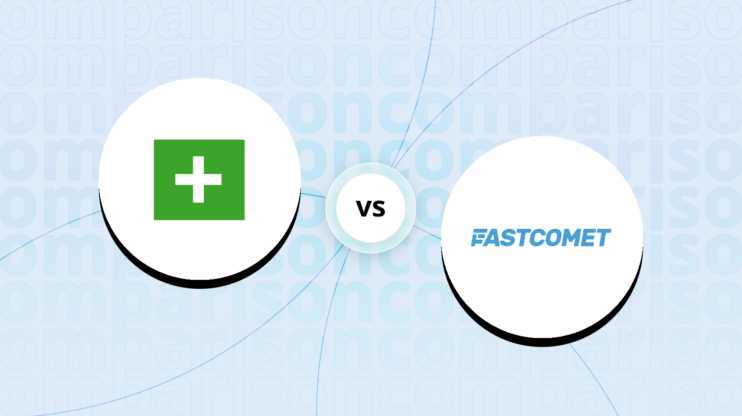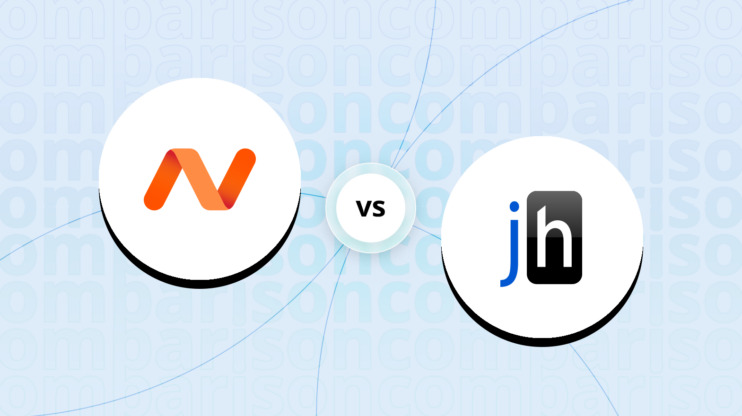Ionos vs Pagely: Final verdict
Looking over IONOS vs. Pagely, both providers offer distinct strengths catering to varied user needs, making either an excellent choice depending on your requirements.
-
Pagely (Overall grade: 8.1)
Pagely shines with its superior uptime, enterprise-focused solutions, and advanced security measures. The platform leverages AWS infrastructure to deliver robust high-traffic support and an unmatched 99.99% uptime guarantee, thanks to multi-region redundancy and a proficient load balancing system. Its premier managed WordPress hosting is perfect for businesses needing top-tier performance, security, and flexibility. Despite its higher costs, Pagely’s targeted features such as dedicated AWS hardware, custom scaling, SOC 2 Type I & II certifications, and 24/7 DevOps support justify the price, making it an outstanding choice for large-scale operations or agencies with specific needs.
IONOS (Overall grade: 8.2)
IONOS effectively caters to small-to-midsize enterprises and individuals with a broad suite of hosting types and economically priced plans, which include free domains and professional email hosting. The service’s 99.9% uptime guarantee and extensive support options, like 24/7 customer support and a personal consultant, complement its range of features such as SSD storage, Cloudflare CDN, and PHP 8.2 support to deliver impressive performance. IONOS excels in affordability and usability with a user-friendly admin panel, making it accessible for beginners. Despite occasional criticism over customer support quality and interface design, its competitive pricing and comprehensive feature set offer substantial value, particularly for those seeking versatile and cost-effective hosting solutions.
 Overall grade:8.2 |
 Overall grade:8.1 |
|
|---|---|---|
| Uptime and Availability | 9.0 | 9.5 |
| Hosting Performance | 8.2 | 8.8 |
| Hosting Security | 8.9 | 9.2 |
| Price | 8.5 | 7.4 |
| Hosting Features | 5.8 | 4.6 |
| Ease Of Setup | 8.5 | 8.2 |
| User Management | 7.9 | 8.4 |
| Customer Support | 8.7 | 8.9 |
| User feedback | 3.5/5 | 4.9/5 |
Hosting types offered
Both platforms provide a variety of hosting types, each designed to meet the different needs of users.
 |
 |
|
|---|---|---|
| Shared hosting | ||
| Cloud hosting | ||
| WordPress hosting | ||
| Ecommerce hosting | ||
| VPS hosting | ||
| Dedicated hosting |
Although both offer a variety of hosting plans tailored to different needs, in certain cases, one platform may prove to be more suitable.
Detailed comparison
Uptime and availability
Evaluates the average uptime statistics, uptime guarantee and overall availability of the hosting
provider
Score Components:
- Uptime percentage (30%): evaluates the uptime statistics in given period of time
- Uptime guarantee (20%): Assesses if the platform offers an uptime guarantee and
whether the actual uptime matches the promised guarantee. - General performance (25%): Evaluates how fast is the average response time and overall
it’s stability. - Responsiveness (10%): Adaptability to different devices and screen sizes.
- Availability (25%): Reflects the total downtime and number of outages.
 9.0
9.0
 9.5
9.5
🏆 Winner
Pagely: Unmatched high availability architecture for ultimate reliability.
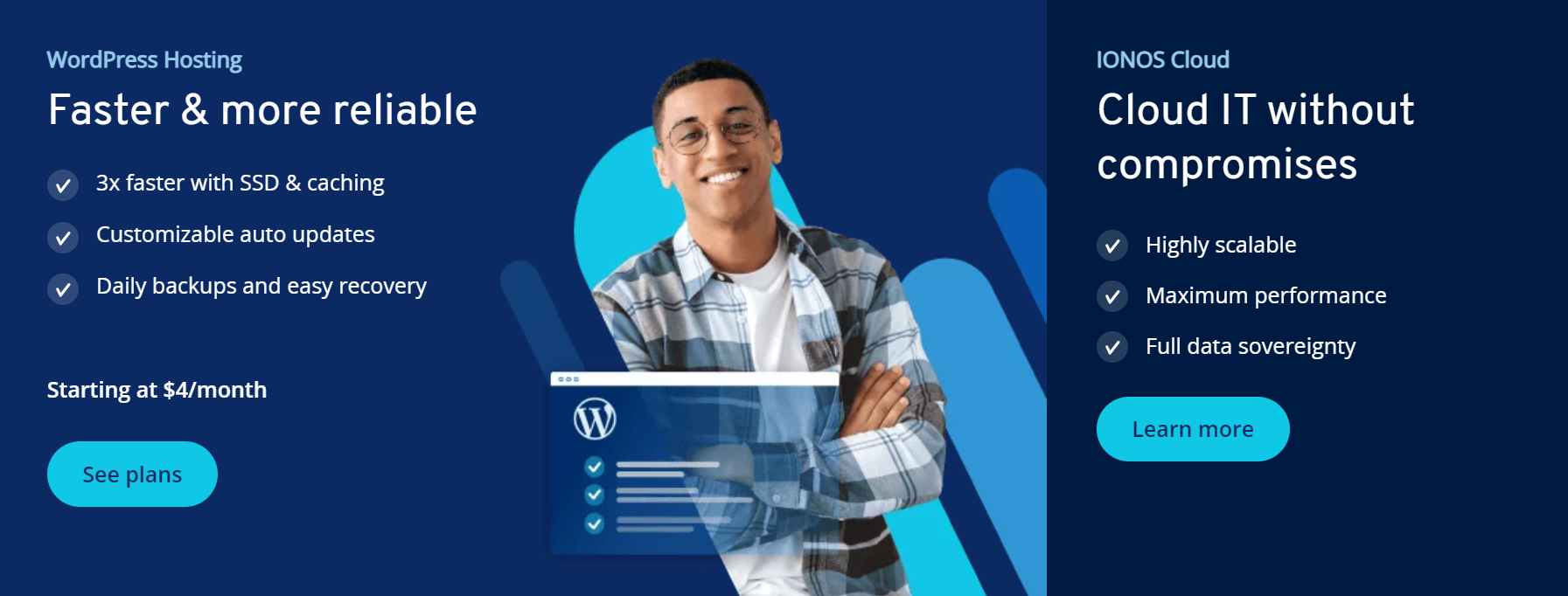
Pagely stands out with its 99.99% uptime guarantee and high availability architecture, ensuring exceptional reliability. Its use of separate availability zones and multi-region redundancy further enhances its uptime. With a disaster recovery system and 14 global data centers, Pagely also offers automatic load balancing and emergency fallback solutions, ensuring continuous service in any situation.

IONOS offers a 99.9% uptime guarantee with georedundant infrastructure and DDoS protection, providing reliable hosting services. It features a Cloudflare CDN for faster load times and redundant network connectivity. IONOS also supports daily backups, PHP extended support, and performance level adjustments, making it a solid choice for many users. Despite its lower score, IONOS provides a strong hosting service with flexible plans and affordable pricing.
Which one has better hosting performance?
Score Components:
- Hosting speed (30%): This includes SSD quality, Load times, PageSpeed score ranges,
additional information on website speed, built-in plugins for performance enhancement, available caching
methods, and CPU/RAM options - CDN (20%): Considers whether CDN is available or not, whether it’s free or paid, and
the quality of the CDN service - Available data centers (30%): Evaluates the number of data centers and their locations
globally. - Scalibility (20%): Looks at whether elastic scaling is available, the process required
to scale (manual upgrade vs. automatic scaling), the presence of dedicated servers, and the costs
associated with scaling.
 8.2
8.2
 8.8
8.8
🏆 Winner: Pagely: Premier managed WordPress hosting perfect for high-traffic sites.
When it comes to general performance, Pagely’s hosting speed is impressive with high-end SSD storage and decoupled database resources, ensuring swift page loads. IONOS, too, offers speedy performance with SSD storage and the latest PHP 8.2. Both providers use CDN technology, with IONOS leveraging Cloudflare’s global presence across 60+ data centers, while Pagely includes superior caching and CDN through Amazon AWS. Pagely’s vCPU and RAM start at 2 vCPUs and 4GB RAM, suitable for heavier workloads, whereas IONOS ranges up to 19 GB RAM, depending on the plan.
Website Speed
Both IONOS and Pagely excel in terms of website speed. IONOS utilizes dual platform technology and HTTP/2 protocol for rapid page loads, alongside SSD storage. Pagely, on the other hand, also employs SSDs and benefits from Amazon AWS’s infrastructure for enhanced speed and reliability. The multiple data centers and robust caching mechanisms ensure quick data transfer for both providers, contributing to stellar website performance.
Scalability
IONOS offers scalable performance with adjustable levels that can be modified as needed, costing $2/month per level, without automatic upgrades. Pagely, however, presents a more flexible and custom scaling approach, particularly suitable for enterprise clients, albeit with higher costs. Pagely’s high availability plans and custom configurations allow for seamless scalability. Dedicated servers are available at both providers, but Pagely leans more towards custom enterprise deployments, starting at $2500/month.
Which one has better security features?
and regulatory requirements
Score Components:
- Technical security measures (40%): This includes encryption, firewalls, DDoS
protection, secure configurations, server monitoring, access control and availability of security addons
(e.g Sitelock security). - Operational security measures (30%): Encompasses data privacy, backups and data
redundancy. - Compliance and certifications (20%): Adherence to legal and regulatory requirements
(e.g., GDPR, HIPAA) and possession of certifications (e.g., ISO 27001, SOC 2). - Business and reliability (10%): Factors in the provider’s reputation, uptime
guarantees, and customer support.
 8.9
8.9
 9.2
9.2
🏆 Winner: Pagely: A robust security-focused hosting solution ideal for WordPress sites.
Both IONOS and Pagely have notable differences in their approaches to technical and operational security, as well as in their compliance with regulations.
Technical security measures:
IONOS provides an extensive array of technical security features such as advanced DDoS protection, daily malware scans, and automatic malware removal on specific plans. They also offer customizable firewall rules and SIEM software for constant security monitoring. On the other hand, Pagely uses AWS Shield Standard for efficient DDoS protection and integrates a proprietary web application firewall to safeguard servers and applications. Pagely excels with its high-frequency malware scanning and real-time threat detection, adding two-factor authentication (2FA) for an extra layer of security. With resource isolation ensuring dedicated server resources for each client, Pagely offers a more secure and isolated environment.
Operational security measures:
IONOS includes daily backups with up to six days of data recovery, georedundant data centers for uptime and data protection, and customizable firewall rules. The platform also includes anti-phishing and anti-spam filters and SSH and SFTP access for secure site management. Pagely, however, boasts 24/7 uptime monitoring and an effective incident response system including malware cleanup. They also provide real-time vulnerability patching for WordPress core, plugins, and themes, ensuring continuous security for all hosted sites. The PressARMOR™ service provides continuous monitoring and patching of WordPress environments.
Compliance and certifications:
Both IONOS and Pagely are GDPR compliant, adhering to the European Union’s regulations regarding personal data protection. IONOS also suggests a focus on secure transactions, which could imply PCI compliance. Pagely excels with SOC 2 Type I & II certifications, meeting rigorous AICPA standards, and holds an Attestation of Compliance for PCI-DSS SAQ-A, crucial for e-commerce requirements. While IONOS focuses on broad regulatory compliance, Pagely demonstrates a higher level of specialized certifications ensuring stringent adherence to key security and regulatory frameworks.
 |
 |
|
|---|---|---|
SSL certificate |
DV, OV, EV, Wildcard |
Let’s Encrypt, Custom |
Additional security features |
DDoS Protection, Malware Scanning, Daily Backups |
DDoS Protection, 2FA, Web Application Firewall |
PHP versions |
PHP 4.0 to 8.3 |
PHP 7.4 or newer |
GDPR compliance |
Yes |
Yes |
HIPAA compliance |
Not specified |
Not specified |
PCI compliance |
Not specified |
Yes |
Hosting features
Score Components:
- Domains (20%): Assesses the availability of a free domain, domain purchase options, and
pricing - Email (15%): Considers if the provider offers full email hosting, or is reselling
third-party service, and if the email is only transactional or not - Website builder (15%): Checks if website builder is available, and it’s user
friendliness and overall the level of customization allowed. - Staging environment (20%): Determines if a staging environment is available, allowing
for testing changes before going live. - FTP & SFTP accounts (10%): Evaluates if and how easily users can access FTP and
SFTP accounts - Git and SSH access (20%): Assess whether Git is integrated into the hosting service and
if SSH access is provided
 5.8
5.8
 4.6
4.6
🏆 Winner: IONOS: A comprehensive and versatile hosting provider offering robust features and excellent customer support.
Both IONOS and Pagely offer impressive hosting features, yet they cater to different user needs with various unique selling points. IONOS provides a user-friendly Click & Build website builder allowing the effortless installation of apps such as WordPress, Drupal, and Joomla. It caters to both beginners and advanced users, offering scalability with features like CDN, HTTP/2 protocol, and PHP 8.2 support. Pagely, while designed more for enterprise-level clients, provides a high-availability setup with Amazon’s cloud infrastructure, advanced caching through NGINX/OpenResty, and exceptional security measures. IONOS’s competitive pricing, including plans starting as low as $4/month, and added perks like a free domain for the first year make it an attractive choice for budget-conscious individuals and small businesses. In contrast, Pagely’s starting plans are at a premium, reflecting the advanced features suitable for high-traffic sites needing top-notch performance and security.
Another significant difference lies in customer support and flexibility. IONOS impresses with 24/7 customer service accessible via phone, a personal consultant, and resources like a Help Center and Community support. It also offers daily backups and SiteAnalytics for marketing insights. Pagely provides expert WordPress support along with 24/7 ticket and live chat support, with a specialized focus on incident response and DevOps management. Pagely’s plans include managed devops and high configurability, appealing to businesses with specific needs requiring advanced customization and resilient infrastructure. While both offer free SSL and automated backups, IONOS stands out with its affordability, free domain registration, professional email services, and extended support for PHP versions, making it more versatile for a variety of users.
 |
 |
|
|---|---|---|
| Free domain | Yes, for the first year | No |
| Free SSL | Yes | Yes |
| Email hosting | Yes | No |
| Website builder | Yes | No |
| Staging environment | No | Yes |
| FTP & SFTP accounts | Yes | Yes |
| Git and SSH access | Yes | Yes |
| Free backup | Yes | Yes |
| Money back guarantee | Yes, 30-day | No |
a location.
As a result in rare cases the features mentioned here can differ from the ones you see on their websites.
Both providers support a range of users from beginners to experts with user-friendly website builders and WordPress staging areas. However, in terms of developer tools, both Example hosting one and Example hosting two offer robust options including SSH access, support for multiple programming languages, and Git for version control, thus appealing to developers looking for advanced capabilities.
Email services:
IONOS offers professional email hosting included in their plans, enabling users to set up and manage their email campaigns directly. On the other hand, Pagely does not provide email hosting services within their plans, which might require users to resort to third-party solutions. For businesses that rely extensively on custom email domains and campaign management, IONOS provides an edge with its integrated solution.
Price
Score Components:
- Plan value (40%): What each pricing tier offers.
- Transparency and clarity (30%): Clearness of pricing structures.
- Flexibility of plans (20%): Range of options to suit different budgets.
- Hidden costs (10%): Additional expenses not included in the plan.
 8.5
8.5
 7.4
7.4
🏆 Winner: IONOS:Offers a variety of customizable plans at competitive prices.
Evaluating the pricing of plans among various hosting providers can be complex due to their differing pricing and renewal strategies. Additionally, certain plans require annual commitments, which adds to the difficulty of making comparisons. The prices listed are based on monthly commitments; plans requiring annual commitments are indicated. Additionally, although some providers offer identical plans for WordPress and shared hosting, we have created separate tables for each to enhance clarity.
IONOS provides competitively priced plans with a range of features such as free domains and SSL certificates, daily backups, and comprehensive support across different tiers. In contrast, Pagely offers high-performance plans with managed DevOps support and flexible configurations, targeting enterprise needs. While IONOS plans start at just $4/month, Pagely’s starting point is $199/month, highlighting its focus on advanced performance and scalability. Despite the high costs, Pagely specializes in enhanced security and performance features tailored for large-scale operations.
 |
 |
|---|---|
|
Start Plan$6
1 website, 25 GB SSD, Enhanced Performance, Free Domain/SSL, Daily Backup, $55 Fiverr Credit. Value for price:8.5
|
Performance Lite$375
2 vCPU, 4 GB RAM, 50 GB SSD, No PHP Cap, Decoupled DB, Managed DevOps. Value for price:7.4
|
|
Grow Plan$10
1 website, 50 GB SSD, Enhanced Performance, Free Domain/SSL, Daily Backup, Caching Plugin, Jetpack Backup, $55 Fiverr Credit. Value for price:8.5
|
Performance$499
2 vCPU, 4 GB RAM, 50 GB SSD, No PHP Cap, Decoupled DB, Managed DevOps. Value for price:7.4
|
|
Boost Plan$15
1 website, 75 GB SSD, Enhanced Performance, Free Domain/SSL, Daily Backup, Caching Plugin, Jetpack Backup, Site Analytics Plus, $55 Fiverr Credit. Value for price:8.5
|
Performance+$999
4 vCPU, 8 GB RAM, 50 GB SSD, No PHP Cap, Decoupled DB, Managed DevOps. Value for price:7.4
|
 |
 |
|---|---|
|
Essential Plan$6
1 website, 10 GB storage, Free Domain/SSL, Daily Backup, 24/7 Support. Value for price:8.5
|
N/A
Value for price:N/A
|
|
Starter Plan$8
10 websites, 100 GB storage, Free Domain/SSL, Daily Backup, 24/7 Support. Value for price:8.5
|
N/A
Value for price:N/A
|
|
Plus Plan$12
Unlimited websites, Unlimited storage, Free Domain/SSL, Daily Backup, Enhanced Performance, 24/7 Support. Value for price:8.5
|
N/A
Value for price:N/A
|
|
Ultimate Plan$16
Unlimited websites, Unlimited storage, Free Domain/SSL, Daily Backup, Maximum Performance, 24/7 Support. Value for price:8.5
|
N/A
Value for price:N/A
|
 |
 |
|---|---|
|
Cloud 1$29.99
1 Website, 100% Network Uptime, 10GB SSD Storage, 2vCPU Compute Power, 24/7 Priority Support Voice Chat. Value for price:7.2
|
Jump Start$100
4 CPU Cores, 8GB Memory, 40GB SSD Space, 5TB Data Transfer. Value for price:7.8
|
|
Cloud 10$49.99
10 Websites, 100% Network Uptime, 125GB SSD Storage, 20vCPU Compute Power, 24/7 Priority Support Voice Chat. Value for price:8.7
|
Business$200
8 CPU Cores, 12GB Memory, 80GB SSD Space, 5TB Data Transfer. Value for price:8.0
|
|
Cloud 25$89.99
25 Websites, 100% Network Uptime, 175GB SSD Storage, 75vCPU Compute Power, 24/7 Priority Support Voice Chat. Value for price:8.8
|
Business Plus$300
12 CPU Cores, 16GB Memory, 120GB SSD Space, 5TB Data Transfer. Value for price:8.3
|
|
Cloud 50$109.99
50 Websites, 100% Network Uptime, 225GB SSD Storage, 150vCPU Compute Power, 24/7 Priority Support Voice Chat. Value for price:8.8
|
Super Power$400
16 CPU Cores, 20GB Memory, 160GB SSD Space, 5TB Data Transfer. Value for price:8.8
|
Enterprise plans
IONOS doesn’t have enterprise plans, but their VPS and dedicated hosting plans may be suitable the needs of larger businesses or enterprises. Pagely does not have dedicated or VPS hosting options, however the platform offers Reseller Hosting and plans for specifically for agencies, which can be suitable for enterprises.
Ionos vs Pagely: Ease of setup
platform.
Score Components:
- Site migration (25%): Assesses whether the provider offers tools for site migration,
either automated or manual, and whether these services are free or require a fee. - Admin panel usability (35%): Evaluates the type of admin panel provided, such as the
standard cPanel or a custom solution, focusing on its accessibility and user-friendliness for both
technical and non-technical users. - Setup features (20%): Examines the availability and ease of use of various setup
features, including FTP accounts, file managers, email account setup, PHPMyAdmin, and easy CDN
configuration. - Help center quality (20%): Measures the quality and accessibility of the provider’s
help center resources, including articles and tutorials.
 8.5
8.5
 8.2
8.2
🏆 Winner
IONOS: A user-friendly hosting service with extensive support and resources for website setup and management.
IONOS uses a custom admin panel which is integrated into their platform, making it accessible for both beginners and experienced users. The user-friendly interface, particularly with the WP Assistant, simplifies WordPress site creation. On the other hand, Pagely also offers a custom admin panel designed for managing WordPress environments. While both admin panels are built to streamline tasks, IONOS stands out with its Click & Build functionality, allowing users to install a wide range of applications like TYPO3, Joomla, Drupal, and PrestaShop with just a few clicks. Moreover, IONOS’s admin panel is designed to cater to non-technical users with managed WordPress hosting that includes customizable updates, free plugins, and themes.
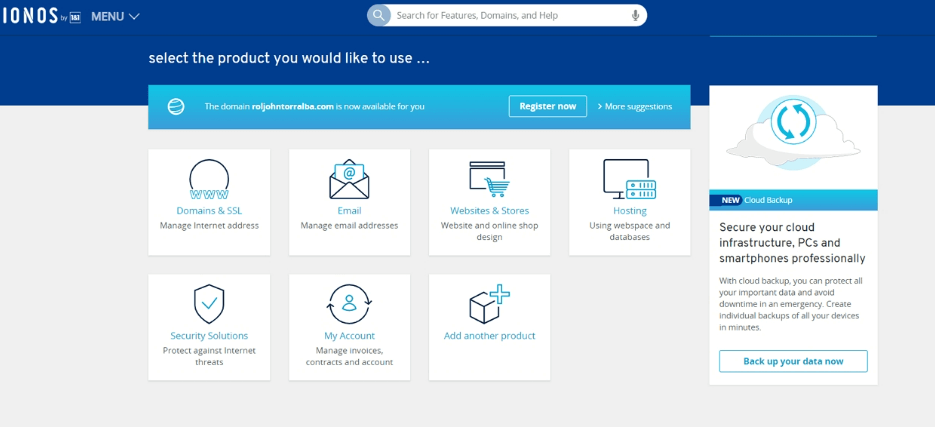
Pagely’s admin panel also provides a variety of tools for managing WordPress sites but is more tailored towards advanced users. The inclusion of command-line tools and detailed caching options like PressCACHE aids in optimization but may pose a learning curve for beginners. While both platforms offer robust solutions, IONOS’s admin panel is more intuitive and user-friendly for all levels, making it slightly more accessible than Pagely’s more specialized approach.
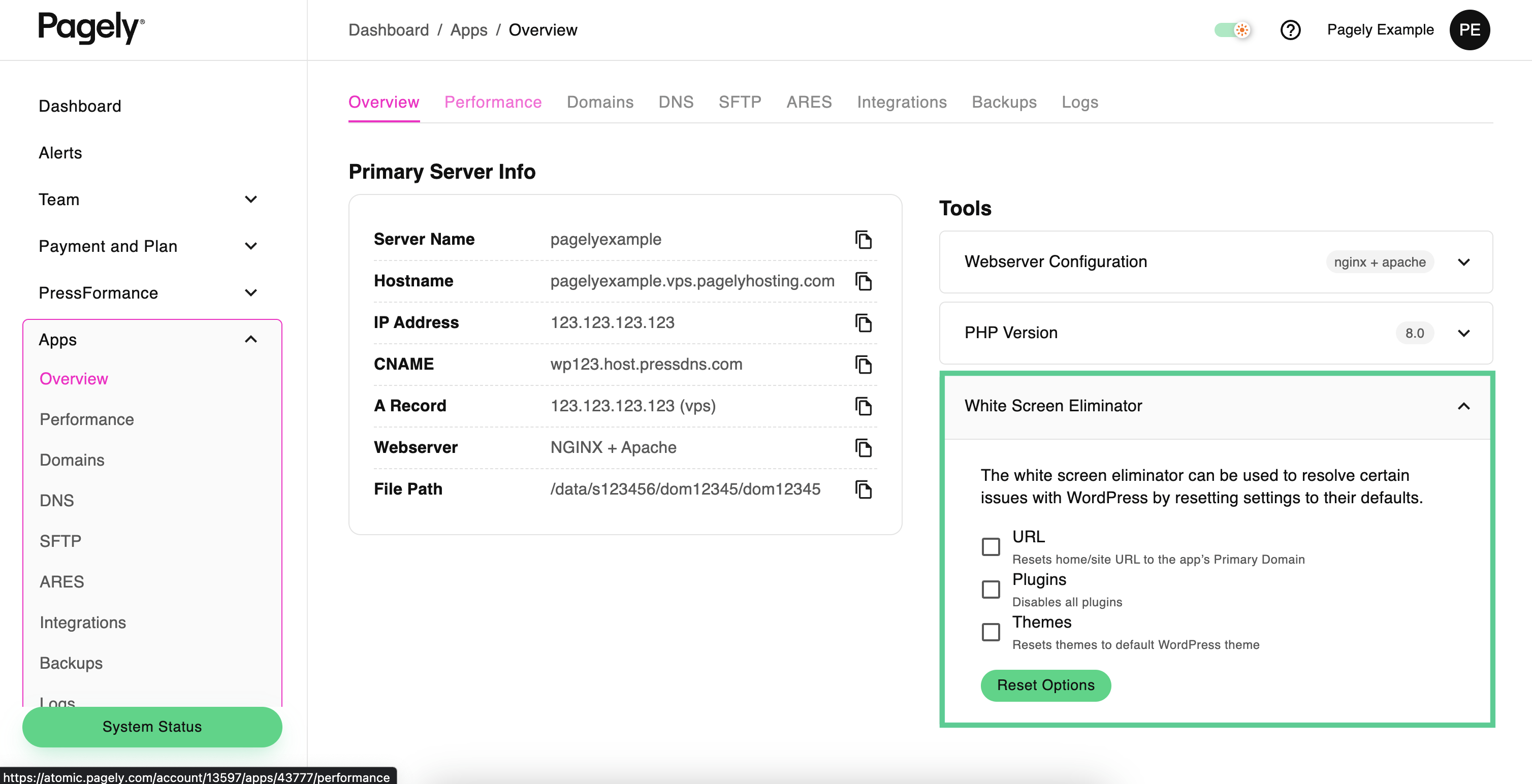
Regarding migration tools, IONOS offers easy migration services with comprehensive support, ensuring a smooth transition at no additional cost. Their 24/7 customer support, along with access to a personal consultant, adds an extra layer of assistance during the migration process. In contrast, Pagely provides detailed instructions for site migration but largely depends on manual processes or third-party services. This might require more effort and some technical know-how, which makes migrations slightly more challenging on Pagely compared to IONOS.
IONOS provides extensive help center resources that cover a broad range of topics from basic setup to advanced management. Their 24/7 customer support via phone, chat, and email, along with a dedicated personal consultant, ensures that users can get immediate help when needed. Pagely also offers a comprehensive knowledge base, but their support is mainly through tickets and chat. While they provide detailed guides and tutorials, the immediate availability and wide range of support options make IONOS more accessible and supportive for users at all levels.
User management
accessibility.
Score Components:
- Role customization (40%): Flexibility in creating and defining user roles and
permissions. - Ease of management (30%): User interface and tools for managing users.
- Access control (20%): Effectiveness of access control measures for different user
levels. - Scalability (10%): Ability to manage a growing number of users efficiently.
 7.9
7.9
 8.4
8.4
🏆 Winner Pagely: It surpasses IONOS in user management flexibility and detailed role settings.
IONOS and Pagely both offer comprehensive user management features, but they do so in distinct ways. IONOS focuses on flexibility, allowing users to create, clone, and delete roles, which can be assigned multiple permissions. Pagely, on the other hand, provides predefined user roles that come with specific sets of permissions, making it easier to manage users without having to configure each one manually. While IONOS allows more granular control over what each role can do, Pagely’s predefined roles, such as Account Owner, Super-Admin, and Tech, offer a clear and structured approach to user responsibilities.
IONOS features an intuitive Cloud Panel where roles can be managed and customized in detail. The Management > Roles section offers a comprehensive overview and the Permissions Page allows administrators to tweak permissions as necessary. Pagely simplifies user management with its preassigned roles and straightforward interface. Both platforms make assigning permissions user-friendly, but Pagely’s use of predefined roles simplifies the process, reducing the setup time for administrators.
In terms of access control, IONOS allows a high degree of granularity, with permission groups that control access to all sections of the Cloud Panel. While this is highly customizable, it could become cumbersome as the number of users grows. Pagely, with its structured roles like Account Owner and Super-Admin, offers an efficient system for managing large teams. The streamlined roles ensure fast, efficient access control suitable for growing user bases, making it a more scalable option in this area.
IONOS user roles table:
| Role | Description | Access highlights |
|---|---|---|
| Administrator | Default role with full permissions | All areas and actions in the Cloud Panel are accessible |
Pagely user roles table:
| Role | Description | Access highlights |
|---|---|---|
| Account Owner | Manages entire account, including Admin users | Full control over the account, billing, site-level users, 2FA, and SSH |
| Super-Admin | Administers general and technical aspects | Management of billing, site-level users, sites, 2FA, and SSH |
| Sub-Admin | Focuses on site and technical management | Handling of site-level users, sites, 2FA, and SSH |
| Tech | Handles technical aspects of site management | Manages sites, 2FA, and SSH |
| Billing | Manages billing-specific tasks | Central control over billing-related activities and SSH |
| App-Only | Application-specific user management | Full App-only access including SSH |
| App-Only-Minimal | Limited version of App-Only role | Minimal application-specific tasks along with SSH |
Customer support
hosting provider.
Score Components:
- Support communication channels (30%): Measures the variety of customer support types
provided (live chat, chatbot, email, phone, etc.) - Availability (20%): Assesses the availability hours for each channel, including 24/7
support options. - Technical support quality (30%): Assesses whether the provider offers comprehensive
technical support, including hardware upgrades (e.g., HDD to SSD), software installations, and web
server configuration changes. - Enterprise support (20%): Checks if there are dedicated or priority support services
for enterprise-level customers.
 8.7
8.7
 8.9
8.9
🏆 Winner Pagely: Pagely offers more comprehensive and tierless 24/7 support, along with high customer satisfaction ratings.
 |
 |
|
|---|---|---|
Phone support |
||
Live chat support |
||
Chatbot |
||
Email/ticket support |
||
Enterprise support (dedicated agent, priority support) |
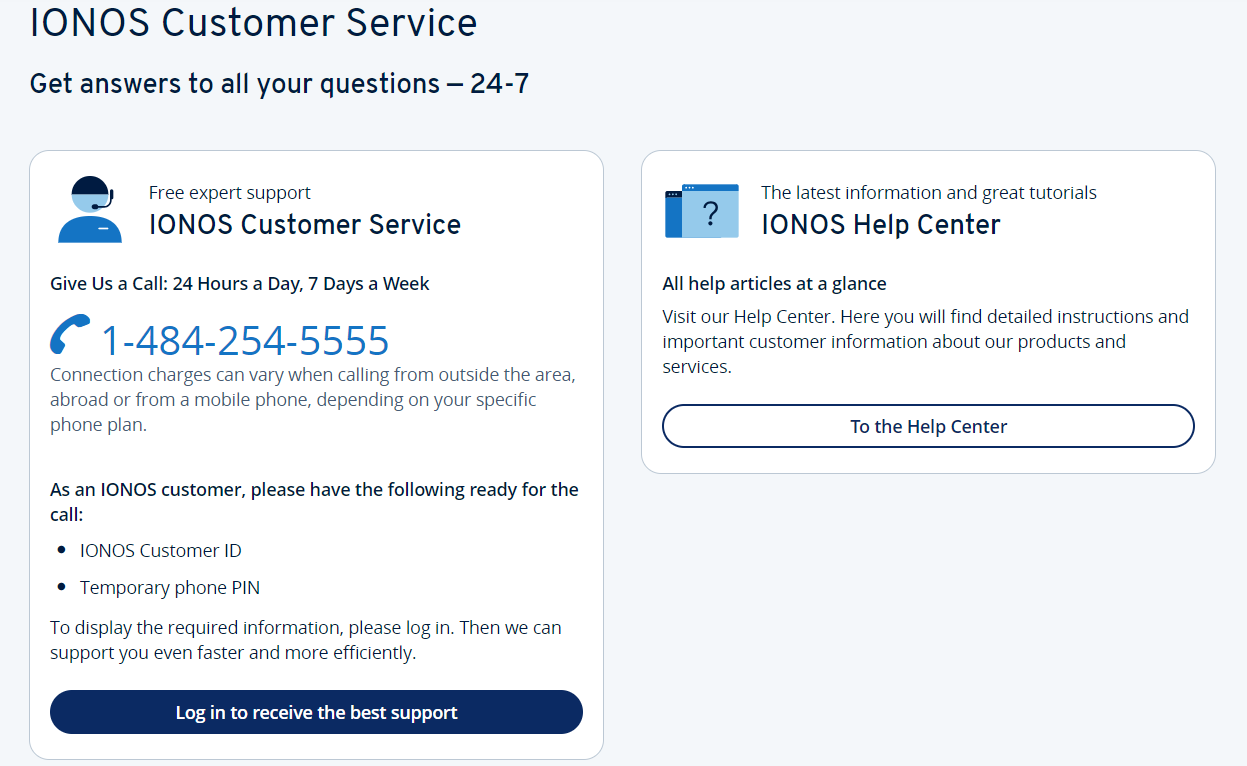
IONOS provides 24/7 customer service through phone, chat, and email, with the added advantage of a personal consultant available during business hours. Their help center and community forum supplement their already award-winning support, coupled with a 30-day money-back guarantee for customer satisfaction.
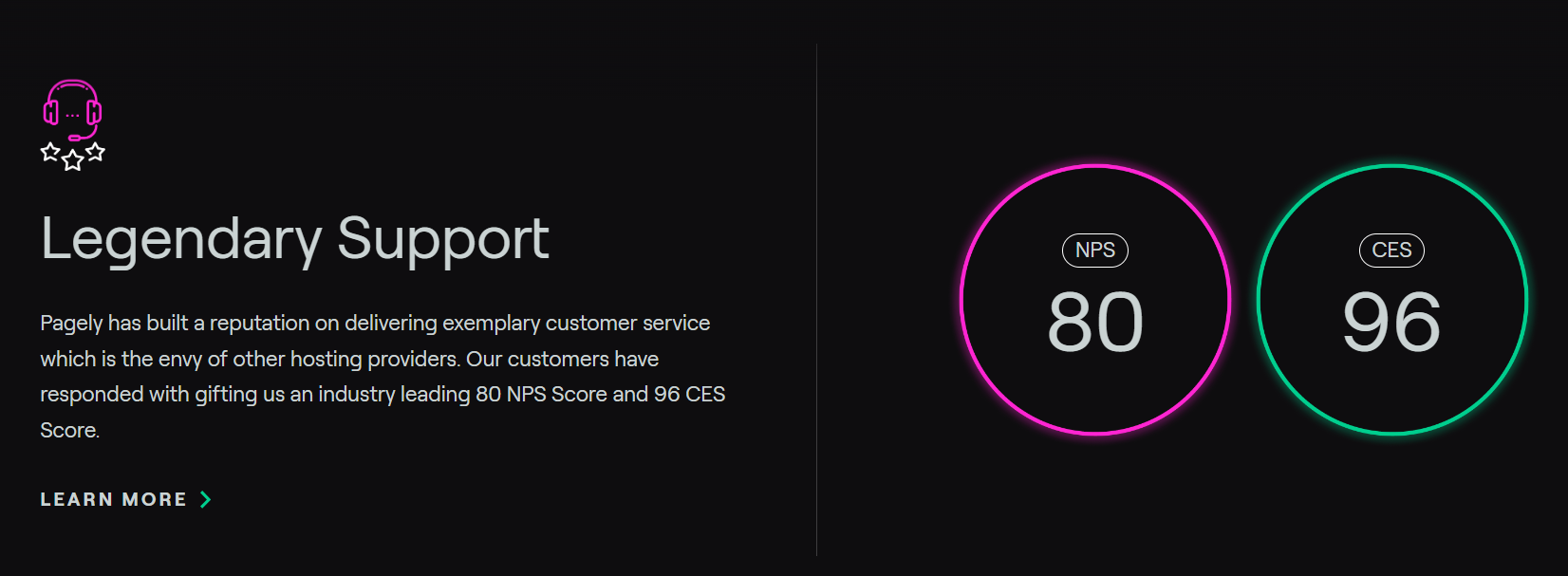
Pagely’s support is accessible through 24/7 support tickets and live chat, with phone support available to customers on select plans. Their unique tierless support system ensures every team member is capable of solving issues without escalation. Pagely boasts strong customer satisfaction metrics, including an impressive response time, and offers an in-depth onboarding process and enterprise support for certain plans.
Ionos vs Pagely: User feedback
User feedback for this hosting provider is quite mixed. Positive aspects include affordable pricing, easy setup, and a comprehensive range of hosting features and tools. However, many users express dissatisfaction with poor customer support, outdated user interfaces, and frequent upselling. Some reviewers also report critical issues such as unreliable service, deceptive business practices, and poor handling of domain and payment matters. Overall, the provider seems to appeal to budget-conscious users but falls short in reliability and support.
Users highly appreciate this hosting provider for its exceptional reliability and top-notch customer support, often comparing it to having an on-call DevOps team. The platform is praised for its speed, security, and a suite of features designed specifically for WordPress hosting. Many find the management tools intuitive and effective, though some express a desire for improvements in specific areas like the Atomic dashboard and multi-user access. The main criticism revolves around the high cost, which is noted as a barrier for smaller operations, but many users agree the premium price is justified by the service’s quality and reliability.
Ionos vs Pagely: FAQ
Which platform is better suited for hosting WordPress websites?
Both IONOS and Pagely offer managed WordPress hosting with robust support and advanced features. Pagely excels with an enterprise focus, superior uptime, and advanced security, making it ideal for large-scale operations. On the other hand, IONOS provides an affordable and user-friendly option, suitable for small-to-midsize enterprises. Therefore, both platforms are effectively tied in this category, catering to different user needs.
Which hosting service offers better security features?
Pagely offers advanced security with AWS Shield Standard, a proprietary web application firewall, high-frequency malware scanning, and real-time threat detection, appealing to enterprises needing top-tier protection. IONOS also provides comprehensive security with DDoS protection, daily malware scans, customizable firewall rules, and SIEM software for continuous monitoring. While both offer robust security, Pagely’s advanced features and additional certifications give it a slight edge.
Which hosting service offers more scalability options for growing websites?
IONOS offers scalable performance with adjustable levels that can be increased as needed, providing flexibility at $2/month per level. Pagely excels in scalability with custom configurations and high availability plans, making it ideal for enterprise clients. Both providers offer dedicated servers, but Pagely’s custom enterprise deployments present more seamless scalability options for rapidly growing websites.
What are the major differences in pricing and value between ionos and pagely?
IONOS provides competitively priced plans starting at $4/month, including free domains, SSL certificates, and daily backups, suitable for budget-conscious individuals and SMBs. Pagely, on the other hand, targets enterprise needs with high-performance plans starting at $199/month, reflecting its premium features and advanced security. While IONOS offers substantial value through affordability, Pagely justifies its higher costs with bespoke solutions and managed DevOps support.
How do the providers handle email hosting and what features are included?
IONOS includes professional email hosting in their plans, allowing users to manage email campaigns with ease and set up custom email domains. This feature is integrated into their hosting packages, providing added convenience. Conversely, Pagely does not offer email hosting services within their plans, requiring users to utilize third-party email solutions. Therefore, IONOS has an advantage in terms of integrated email hosting features.
The making of this blog
We followed a clear, step-by-step process to write and research this article.









